As the the busiest city in France, Paris isn’t short of events, attractions or activities. Due to its variety and density, navigating the city for the first time may seem challenging. Here are a few practical tips and social tricks to better understand France's capital and help make the most of your first trip.
Planning your trip to Paris
What to do in Paris
If your time is limited, make sure you pinpoint in advance the main sights you wish to visit. Booking online for museums, exhibitions or theater performances will save you a lot of time waiting in lines. On the other hand, if you’re more the type who goes with the flow, you might want to stroll until you’re lost and be surprised by your surroundings. In French, there's a word for this: flâner. Most landmarks are concentrated in the city center, which makes it easy to wander around and never get bored.
What to wear in Paris
Wear something comfortable, because Paris is best explored on foot. Dark clothes will generally help you blend in with the Parisians. That said, if you are into dressing up, don’t feel shy! This is the home of couture afterall.
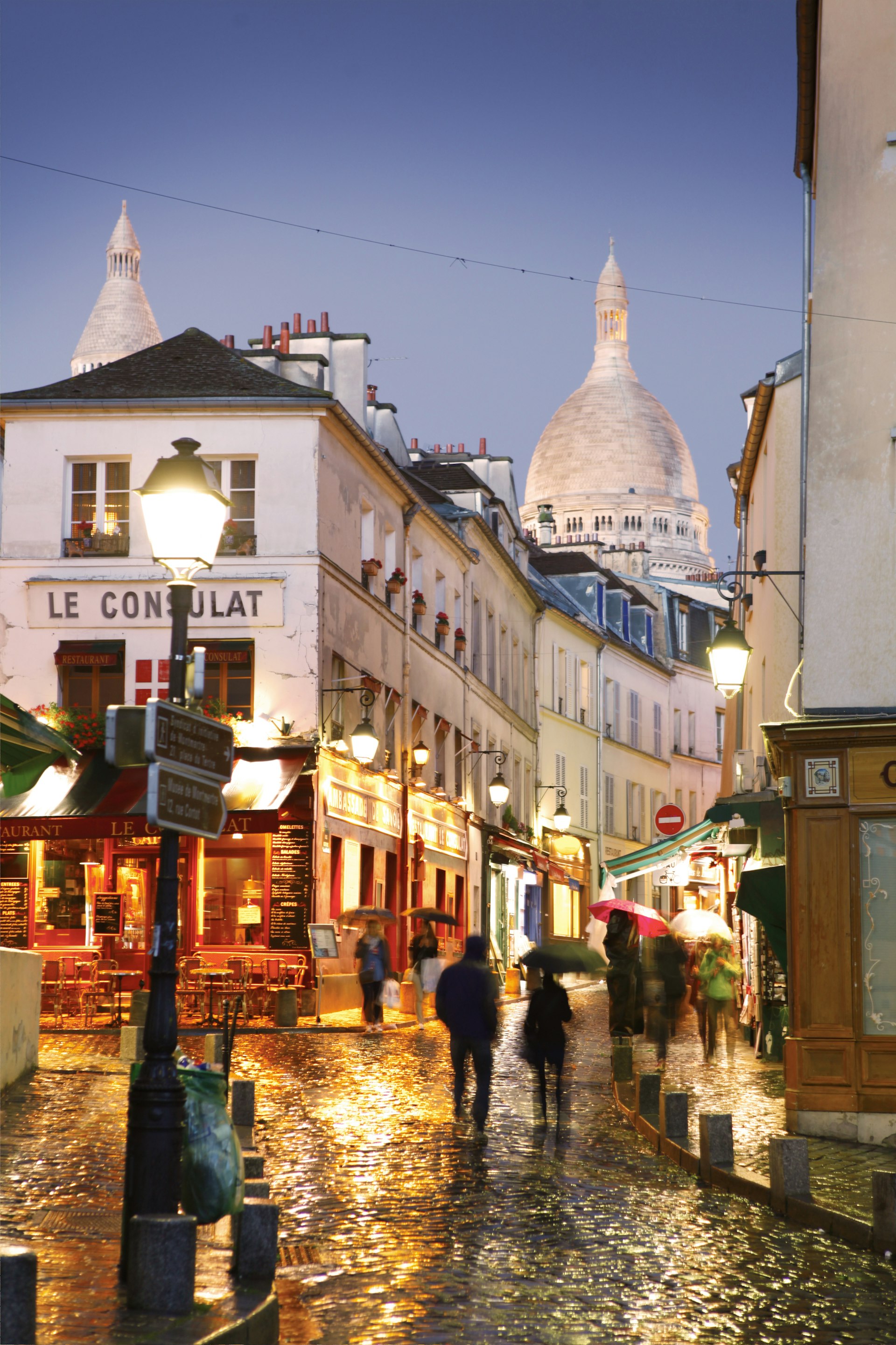
Etiquette in Paris
Be aware of individual space
People in Paris seem to always be in a rush. Museums, parks, shops, offices and restaurants are all next to each other, so you will encounter Parisians in a hurry wherever you go. Be mindful when you need to stop on the street – step to the side to avoid disrupting the flow of people.
Speaking French
Despite the apparent rush, Parisians will generally stop to help when asked to. Most people are able to give you basic directions in English. The phrase "excusez-moi, parlez-vous anglais?" ("excuse me, do you speak English?") is the best way to get someone's attention. It's also polite to greet and say farewell to anyone you interact with, such as shopkeepers, with "bonjour" (or "bonsoir" at night) and "au revoir". Paris is a very diverse city, and people may assume you are local and start a conversation with you in French.
Socializing
La bise – giving kisses on the cheeks (two in Paris) – is the most common greeting among friends. As a foreigner, you won’t be expected to do it. However, should you befriend locals, don’t be surprised to see them make a move towards your cheeks.
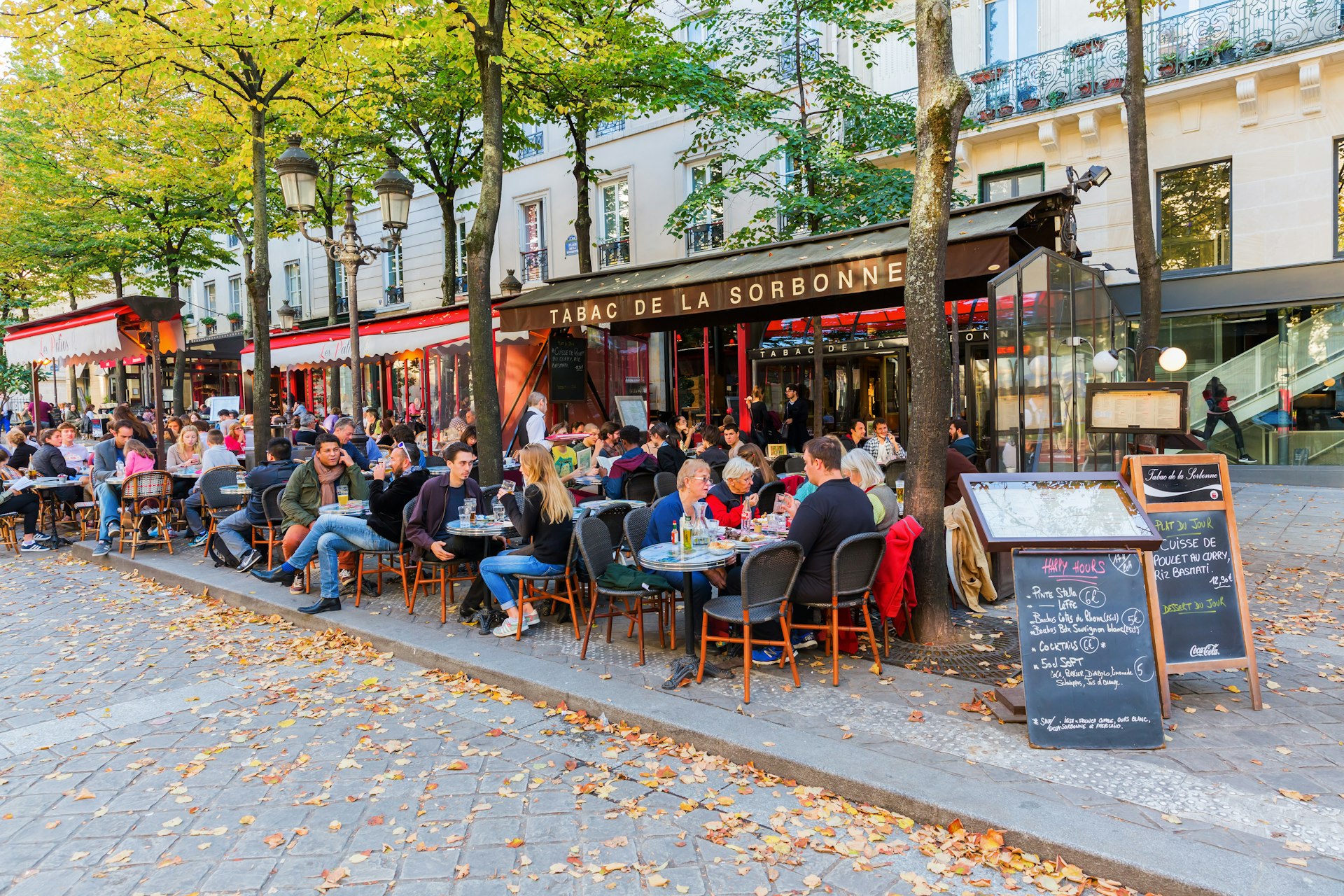
At cafes and restaurants
The best places to experience Paris and its people are at the cafes and restaurants. Take a moment to rest on a terrasse, cafe tables on the street, where you'll be able to people-watch while planning the next part of your day. On arrival at cafes and bars, choose your table and take a seat. A waiter will come and take your order. Tap water is free with any order so don’t hesitate to ask for “une carafe d’eau” (a water jug). Tipping is not required but always appreciated.
Other social rules
Smoking tobacco is common in France. If you wish to smoke, make sure you’re in an open space (pavement cafes count) as smoking inside is forbidden by law. Also note that Parisians appreciate discretion, so loud voices may be frowned upon.
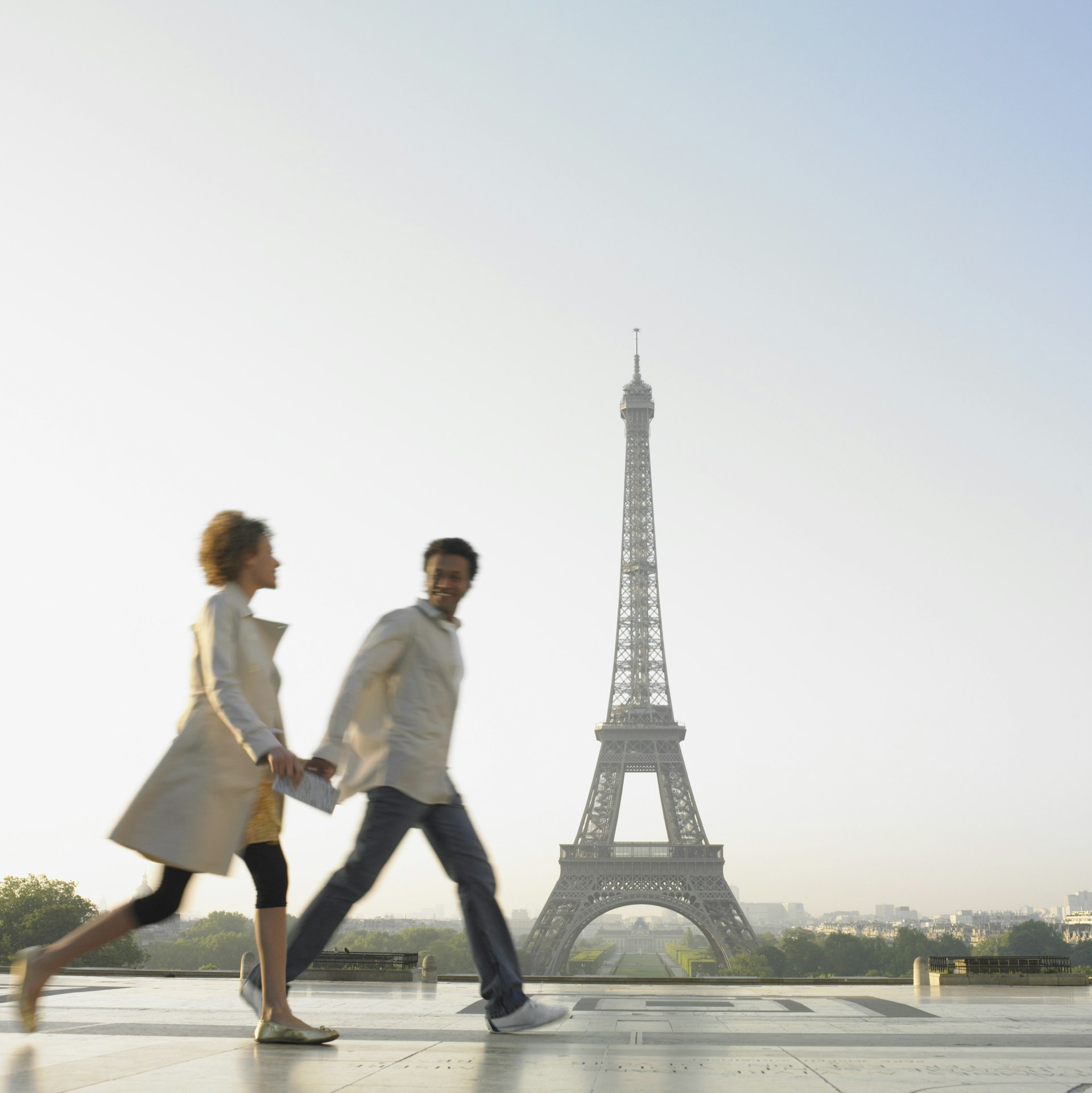
Getting around in Paris
Riding the metro and RER
The golden rule when navigating Paris, particularly on the metro and RER (suburban train network) is to be unobtrusive. Put your backpack or luggage down and refrain from using folding seats when the carriage is full. People usually don’t talk to each other, but certainly more than open to offering assistance to anyone seeking directions.
On platforms and in the corridors
Trains can be completely full at rush hour. When that’s the case, it’s generally better to wait for the following train as they run every few minutes. Wait beside the open doors for people to get off the train before getting on yourself. On the corridors, generally walk on the right side to avoid bumping into people from the opposite direction. On escalators, stand on the right side. Ticket barriers are frequent, so make sure you keep your ticket or Navigo travel pass handy at all times.
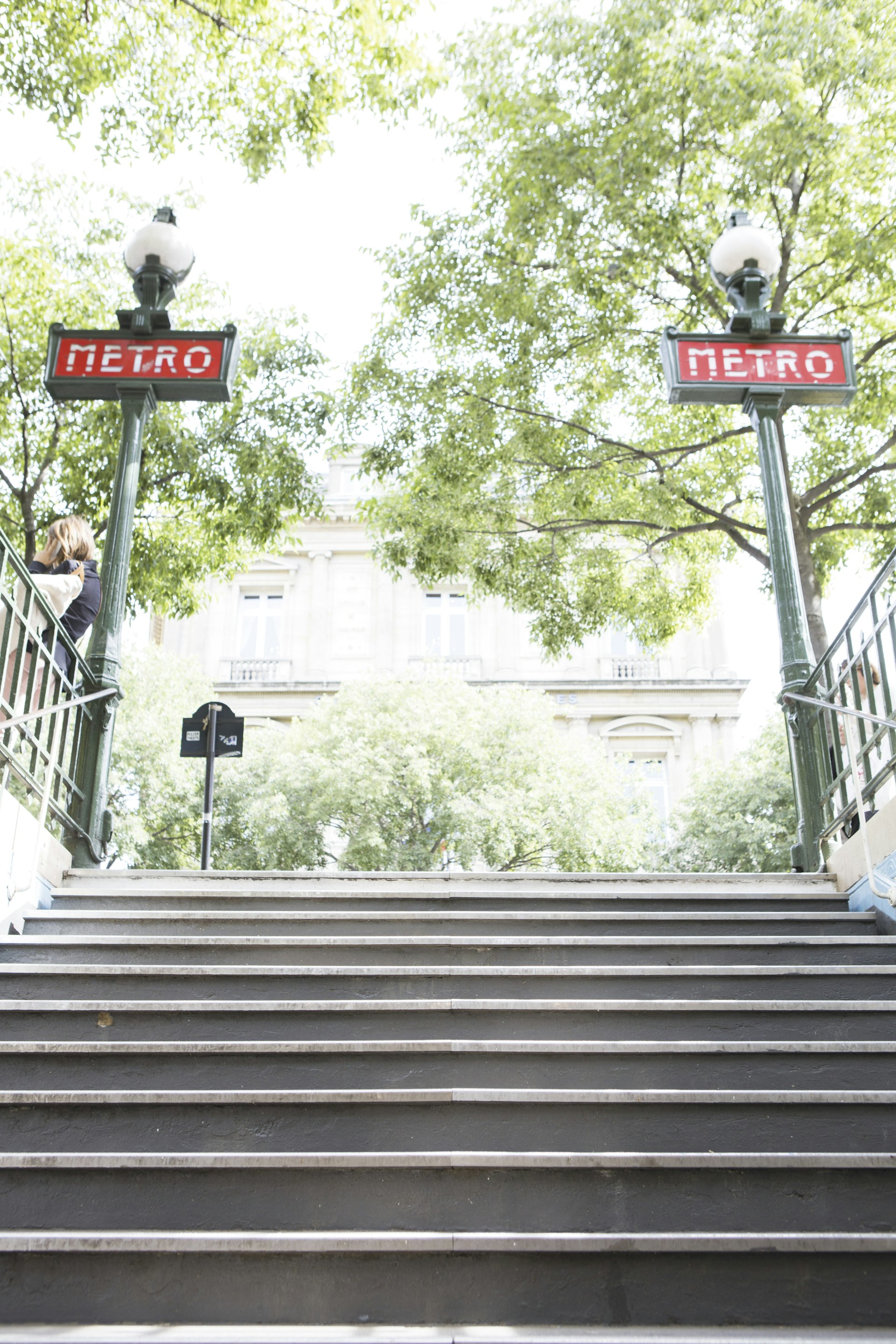
Accessibility
The few metro stations that have elevators are indicated on metro maps. Wheelchair users or those traveling with a stroller may find it easier to travel by bus or tram, which are more spacious, on ground level, and may have wheelchair ramps.
On the road
Beware when you’re on the streets that some roads are shared. They are busy spaces where cars, taxis, delivery trucks, bikes, scooters, motorbikes, skaters and pedestrians coexist. As a traveler, walking or taking public transportation is certainly preferable to driving in Paris – this is a real challenge that even Parisians avoid. The French drive on the right side of the road, but bikes and scooters sometimes use special lanes in the opposite direction. These are not always visible so watch check in all directions before stepping out into the road.
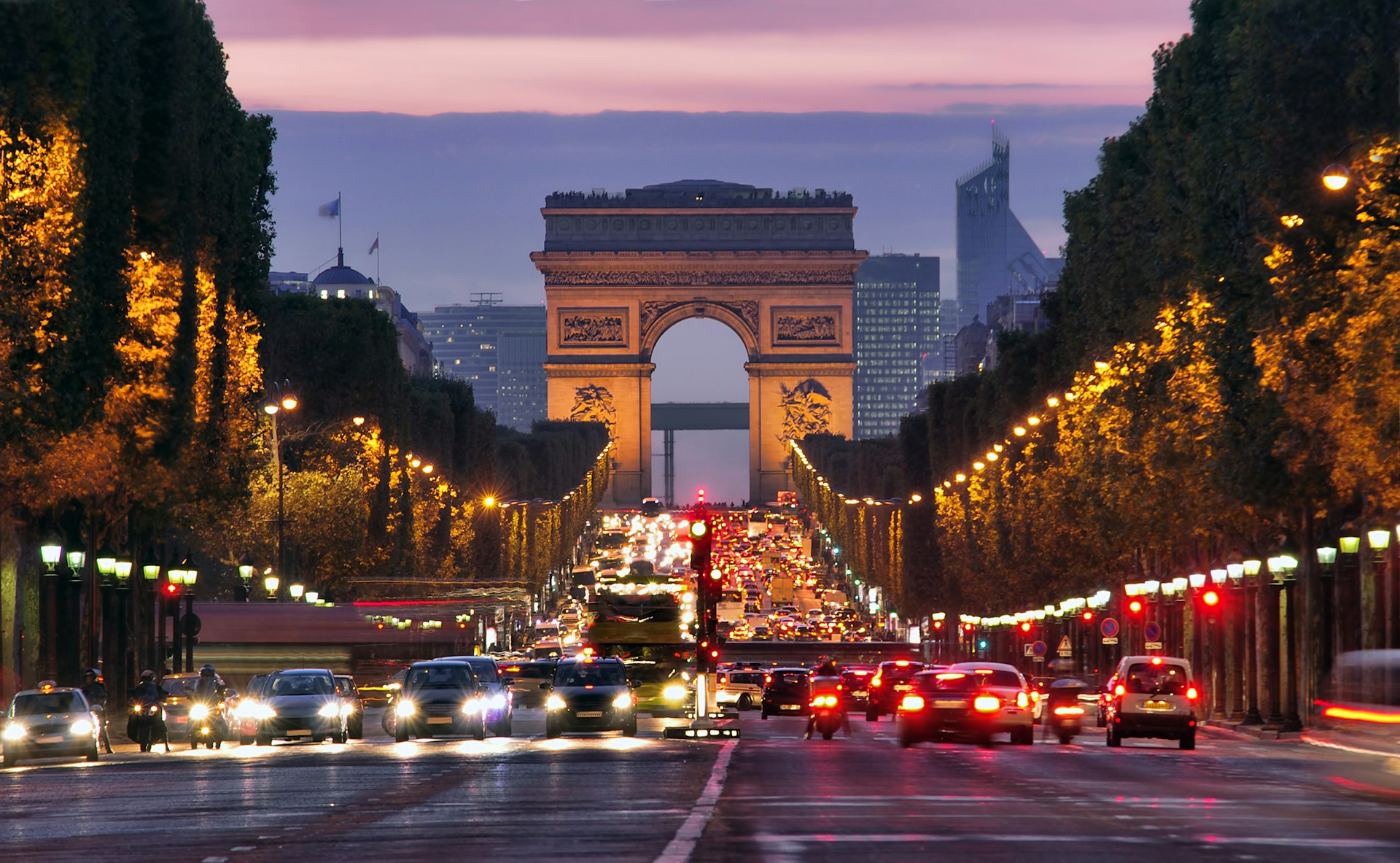
What to watch out for when visiting Paris
Petty crime
Wherever you go, watch out for your personal belongings. Pickpocketing happens on the metro and near major tourist landmarks. You might be approached with a petition to sign or items to buy, distracting you from a potential pickpocket accomplice. A "lost" jewel or banknote on the street is another distraction scam used by pickpockets.
In some tourist places, you may be approached by someone trying to put a bracelet directly on your wrist for you to then buy. They may follow you asking for money for the bracelet. In all cases, politely refuse any interaction and walk away. In general street vendors with stalls, including plastic souvenirs at the bottom of the Eiffel Tower, will be at least ten times more expensive than in a souvenir shop.
Overall safety
In localized areas in the north-east of Paris there can be occasional criminal activity, generally at night time. As a tourist, you shouldn’t be the main target of violence based on your race or origins, especially when sticking to central attractions. Such incidents tend to concern locals in neighborhoods and suburbs in the north of the city.
Women should be aware that catcalling can happen on the streets or on public transportation, despite awareness campaigns. Paris is LGBTQI+ friendly: Le Marais is one of the historic “gayborhoods” in Paris.
Take reasonable precautions as you would in any big city: watch out for potentially aggressive people – often drunk – on the metro for instance. If the metro isn't running (it stops between midnight and 5am on weekdays, from 1:30am on weekends), call a taxi to take you where you need to be.

What to do if things go wrong in Paris
Contacting the police
Unfortunately things do sometimes go wrong, so if you run into a situation where the help of the police is required, look for the closest police station. Every arrondissement (district) has its own central office open at all times. Alternative, dial the European emergency number (112). If you need the fire department, dial 18.
In case of a health emergency
Should you be in need of medical assistance, Paris has the largest operating public hospital system in Europe and emergency rooms are equipped to receive travelers. In an emergency, dial 15 for the ambulance service. Over-the-counter medicines can be found at pharmacies, which are on almost every street in Paris. Some of them are open every day.
You might also like:
Where to stay in Paris
How to get around in Paris
When is the best time to go to Paris?



